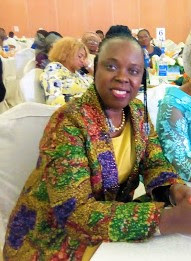One sure way to achieving a prosperous maritime sector is enabling women build capacities to get access to opportunities that abound in various careers in the sector.
Represented on the occasion by Mrs Chinwe Ezenwa, a former Managing Director of the National Inland Waterways Authority (NIWA), Chiazor Anishere said the day’s celebration provided an “opportunity to raise awareness of the importance of gender equality and to highlight the important contribution of women all over the world, to the maritime sector. “
conditions, equal access to education and training, as well as career opportunities.
others, “discouragement from families and society, absence of relevant educators and organizations to encourage them through trainings and fear of being bullied or sexually harassed by male-counterparts.”
to high-level technical training for women in the maritime sector in developing countries; Creating the environment in which women are identified and selected for career development opportunities in maritime administrations, ports and maritime training institutes; Facilitating the establishment of professional
women in maritime associations, particularly in developing countries.”
and sustainably managing our oceans.
growth, both in maritime sector and other walks of life.

